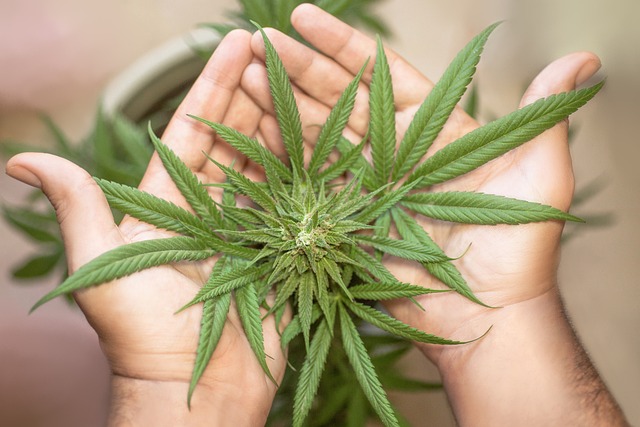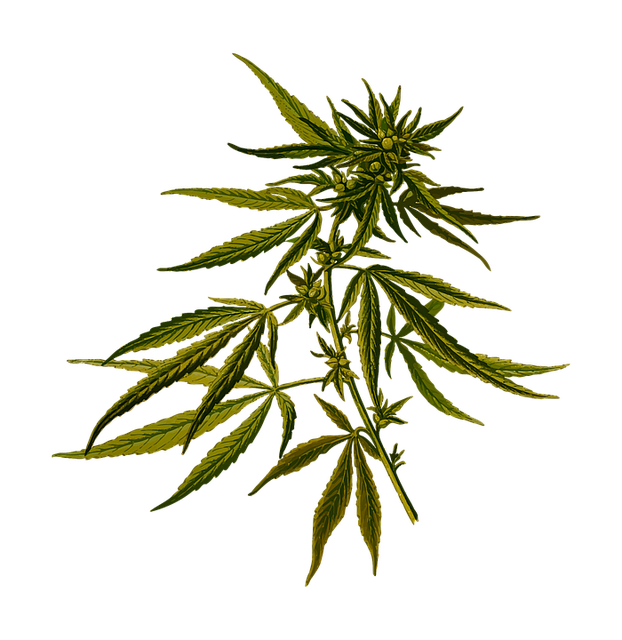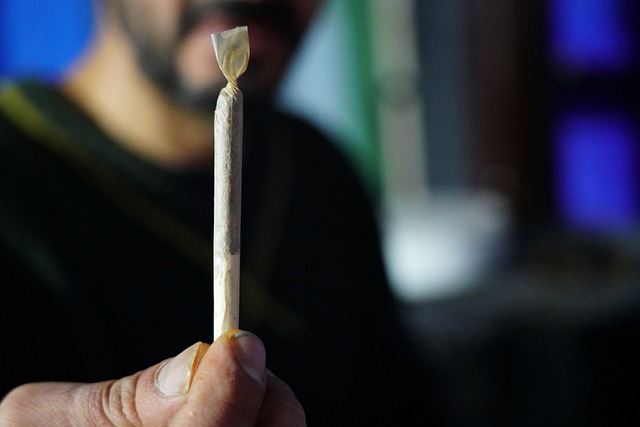Delta-9 tetrahydrocannabinolic acid (THCA), a non-psychoactive cannabinoid found in cannabis, is gaining attention for its potential health benefits, including anti-inflammatory, analgesic, and neuroprotective properties. THCA is legal in Nebraska due to the state's strict prohibition on all forms of cannabis, which includes THCA. This legal distinction highlights the necessity for individuals to understand their local laws, as they can differ significantly from federal regulations. In states where THCA is legal, it offers health benefits similar to its psychoactive counterpart, Delta-9 THC, but without the intoxicating effects. The legality of THCA is a complex issue, especially in states like Nebraska, where both THCA and THC have distinct legal statuses that require careful navigation by consumers and producers. Recognizing the differences between THCA and its decarboxylated form, THC, is essential for anyone involved in cannabis use or commerce, particularly when considering compliance with state regulations. The discussion on THCA's legality, especially in Nebraska, underscores the importance of distinguishing between these cannabinoids to ensure adherence to the law.
Exploring the nuanced world of cannabinoids, this article delves into the therapeutic and potential effects of THCA flower tips, a non-psychoactive compound found in the hemp plant. As we navigate through its legal status in Nebraska, proper handling, and the various methods to consume it, readers will gain a comprehensive understanding of this emerging cannabinoid. We’ll cover everything from the differences between THCA and its psychoactive counterpart, THC, to growing your own legally compliant crop in Nebraska. This guide aims to clarify the legality, benefits, and best practices for incorporating THCA flower into a wellness routine, ensuring both safety and optimal experience. Whether you’re an enthusiast or new to the cannabinoid scene, this article serves as an informative resource on the evolving landscape of THCA legal in Nebraska.
Understanding THCA Flower: The Basics

Delta-9 tetrahydrocannabinolic acid (THCA) is a naturally occurring cannabinoid found in the flowers of the cannabis plant. THCA is the precursor to THC, the psychoactive compound well-known for its effects when cannabis is smoked or vaporized. However, when cannabis flowers rich in THCA are consumed in their raw form or extracted and used in edibles, they do not produce a high due to THCA’s non-psychoactive nature. Instead, THCA is being recognized for its potential wellness benefits, including anti-inflammatory, analgesic, and neuroprotective properties.
As of my knowledge cutoff in 2023, the legal status of THCA flower varies across different states in the United States. In Nebraska, the possession, sale, and use of cannabis, including its derivatives, are strictly prohibited under state law. It’s crucial for individuals interested in THCA to be aware of their jurisdiction’s regulations, as federal and state laws can differ significantly. In states where THCA-rich products are legal, consumers often prefer them for their therapeutic benefits without the psychoactive effects associated with Delta-9 THC. Understanding the nuances between different cannabinoids is essential for both medical researchers and users seeking specific effects or health advantages.
THCA vs. THC: What's the Difference?

Cannabis enthusiasts and researchers alike are often intrigued by the differences between THCA (tetrahydrocannabinolic acid) and its decarboxylated form, THC (tetrahydrocannabinol). Both compounds are prominent cannabinoids found in the Cannabis sativa plant, each with distinct effects and implications, especially within legal frameworks like that of Nebraska. In their raw state, THCA is the precursor to THC. It’s non-psychoactive, meaning it doesn’t produce the high associated with cannabis consumption. Upon heating or combustion, THCA converts into THC, unlocking its psychoactive properties. This conversion is crucial for understanding the effects of cannabis products and is particularly relevant in states where cannabis legality varies by compound. For instance, in Nebraska, the legal status of these compounds can differ; THC is more widely recognized under state law, while THCA exists in a legal gray area.
The transformation from THCA to THC is not just a chemical reaction but also one that alters consumer experiences significantly. THCA is often favored for its potential therapeutic benefits, such as anti-inflammatory and pain-relieving effects, without the psychoactive side effects. In contrast, THC is known for its psychoactive properties and is commonly sought after for recreational and medicinal purposes. As of the latest regulations, navigating the legal landscape of cannabinoids can be complex, especially with compounds like THCA, which may be legal in some forms but not others depending on the state. In Nebraska, for example, understanding the nuances between THCA and THC is essential for consumers and manufacturers alike to ensure compliance with local laws.
THCA-rich flowers have garnered attention for their potential wellness benefits, and as regulations evolve, such as the recent changes making THCA legal in Nebraska, enthusiasts and researchers alike are exploring the nuanced differences between THCA and its psychoactive counterpart, THC. This article has shed light on the foundational aspects of THCA flower, elucidating its unique properties and how it differs from THC. For those in Nebraska and beyond, the evolving legal landscape presents new opportunities to experience and study these compounds responsibly. As the understanding of cannabinoids deepens, so too does the appreciation for their diverse effects and applications. With careful cultivation and discerning consumption, THCA flower promises to be a significant player in the world of wellness.
